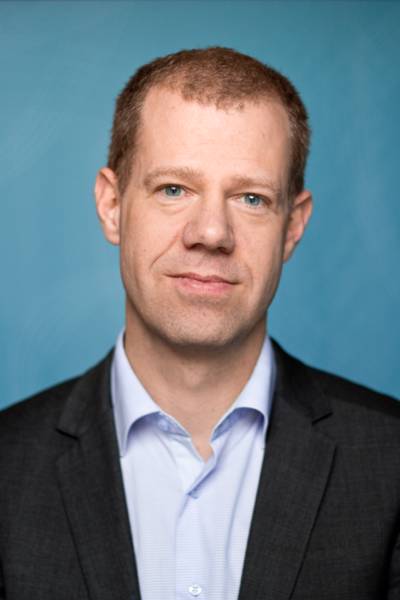Jørgen Carling: All news
101 news items
Sharing research results in Cape Verde and The Gambia
Research with theoretical objectives can also yielded new insights of relevance to policy and public debate in the communities where the research was carried out.
Research results on young people's dreams captivate audiences in Cape Verde
"What is your most important dream in life" was a key question in a large survey of young people, and the source of thought-provoking results.
Call for abstracts: Meanings and Measures of Migration Aspirations
We invite abstracts for a workshop that will explore the forefront of research on the nature of migration aspirations and related concepts. That is, how can we conceptualize and empirically examine people’s thoughts and feelings about potentially migrating?
PRIO migration project selected as 'success story'
The project Quantifying Migration Scenarios for Better Policy (QuantMig) is featured by the European Commission as a success story of impactful research.
Virtual book launch of 'From uncertainty to policy: A guide to migration scenarios' on International Migrants Day
Can migration be forecasted in today's unpredictable world? How can policymakers and scholars navigate inherent uncertainty, with robust and realistic models?
Call for papers - Life and migration: Decentering migration from the life aspirations of (potential) migrants
We invite abstracts for a panel at the IMISCOE Annual Conference, Paris, 1-4 July 2025. The panel aims to offer new insights across theoretical lenses, methodological approaches and geographical contexts. Deadline 23 September 2024.
PRIO Invites Journalists to Apply for Residence Linked to Groundbreaking Research
PRIO hosts six research projects funded by prestigious grants for Europe’s most groundbreaking research. There is now an opportunity for journalists to spend 3-5 months at the institute and engage with these projects.
MIGNEX Insight: What`s next for EU policy on migration and development
In April, MIGNEX convened a major Policy Conference on future EU migration and development policy, in partnership with ODI. See below for a brief summary of our discussions on longstanding and emerging EU policy agendas.
New Research Finds Information Campaigns to Deter Migration Have Little Effect
Research carried out by PRIO has found that public information campaigns warning against migration rarely affect desires to leave. And when they do, they surprisingly tend to increase the wish to migrate.
International Group of Early-Career Scholars Learn Survey Methods at PRIO
Early-career scholars from all over the world came to PRIO to attend a state-of-the-art PhD-level course on survey methods, with a focus on migration research.
Survey Methods in Migration Research: Design, Implementation, and Analysis
PhD-Level Course now open for applications.
FUMI Survey Data Collection Completed in The Gambia
A dedicated team overcomes flooding and other challenges
International PhD Students Participate in Ethnographic Fieldwork Methodology Course
As part of the NORHED II project Partnership for Peace: Better Higher Education for Resilient Societies, PRIO hosted a PhD-level course in Ethnographic Fieldwork Methodology.
Early-Career Scholars Learn Survey Methods in Migration Research
Survey-based research is widespread but also replete with challenges.
Next Steps toward New Insights on Migration, Development and Policy from MIGNEX
Successful MIGNEX consortium meeting in Istanbul, with inspiring discussion as the project members continue to build new knowledge on migration, development and policy.
PhD-Level Course: Ethnographic Fieldwork Methodology
PRIO invites applications for this course, which will be taught in person in Oslo in September 2022.
New PhD-Level Course: Survey Methods in Migration Research
PRIO invites applications for this course, which will be taught in person in Oslo in September 2022.
Kelly Fisher Is the New Coordinator of the PRIO Migration Centre
Kelly Fisher takes over from Mathias Hatleskog Tjønn as the coordinator of the PRIO Migration Centre.
New PhD-Level Course: 'Migration Theory: Perspectives on Time and Temporalities'
PRIO invites applications for this course, which will be taught in person in Oslo in June 2022.
Migration-Related PhD Courses
Three migration-related PhD courses will be offered at PRIO in the course of 2022: (1) Migration theory: perspectives on time and temporalities, (2) Survey methods in migration research: design, implementation, and analysis, and (3) Ethnographic fieldwork methodology: approaches, tools, and ethics.
New Handbook Chapter: Understanding variation and change in migrant transnationalism
The new Handbook on Transnationalism, edited by Brenda S.
New Series of Video Portraits from West Africa
The lives and dreams of young adults in three cities are explored in the project Future Migration as Present Fact (FUMI).
Pursuing Big Dreams in Ghana
Fieldwork for the project Future Migration as Present Fact (FUMI) finally began in Ghana after long COVID-related delays.
Call for Abstracts: Times and Temporalities of Migrant Transnationalism
The Standing Committee on Migrant Transnationalism (MITRA) invites papers for a series of panels at the 2022 IMISCOE conference.
Call for Applications: Research Assistant Position at PRIO
PRIO seeks to recruit a full-time Research Assistant, initially for a period of one year, to work on two projects within the PRIO Migration Centre.
PRIO Migration Centre launches guide to journals
The PRIO Guide to Migration Journals is a new resource which gives authors and readers facts and perspectives on 29 peer-reviewed journals in migration research.
Call for papers: Micro-level dynamics of migrant transnationalism
Research Symposium on Micro-level dynamics of migrant transnationalism
Call for Subcontractors for the FUMI Survey in Ghana, Cape Verde and The Gambia
The Peace Research Institute Oslo (PRIO) seeks partners for survey data collection and related tasks in Ghana, Cape Verde and The Gambia
Integration and Development: Need for Dialogue
How does integration in the country of settlement matter for diaspora members’ development engagements in the Global South? And how has this intersection been addressed in policy and practice? A video from webinar the discussing these questions is available.
What predicts asylum migration flows?
In a new study published in Nature Communications,PRIO researchers use a machine-learning analysis framework to identify leadingpredictors of contemporary asylum migration to the European Union.






